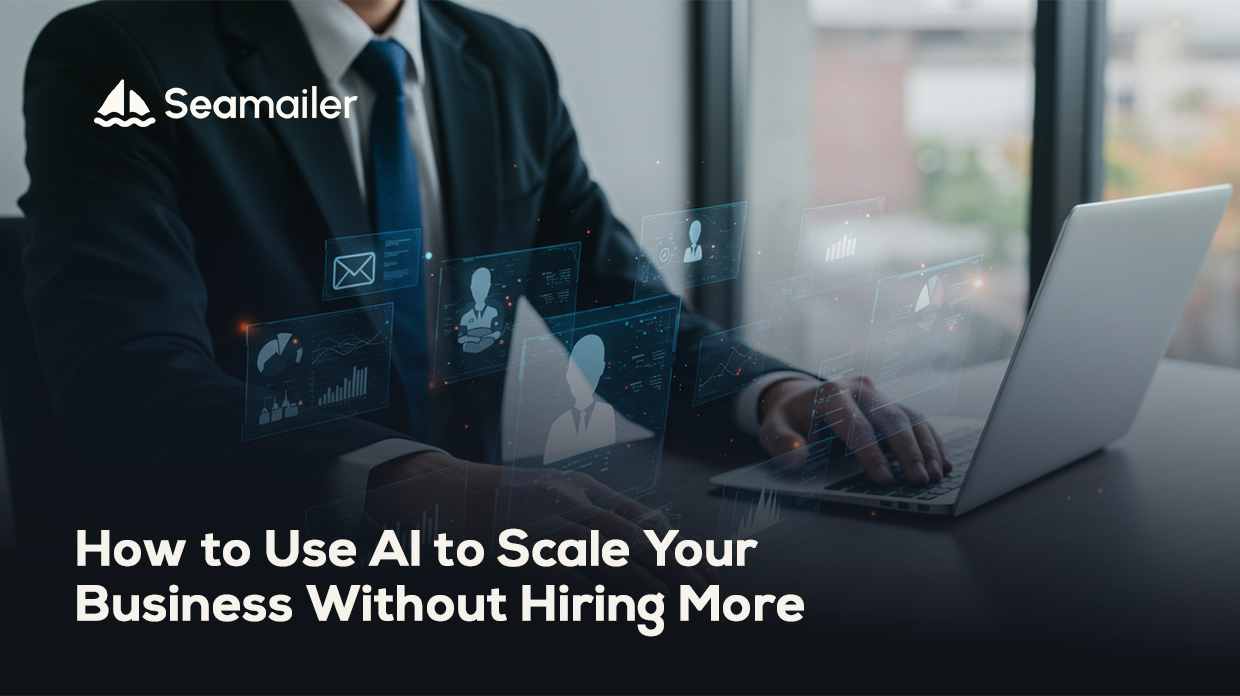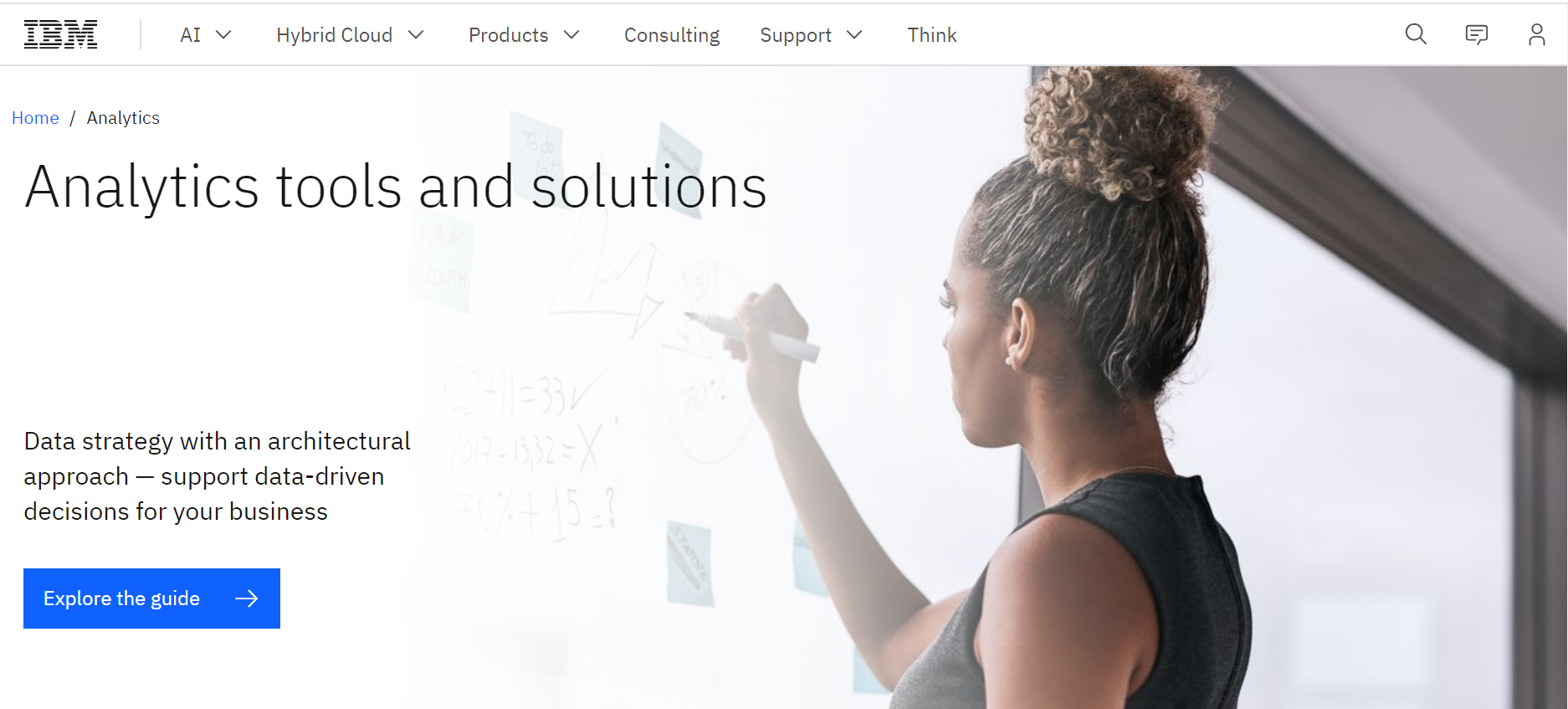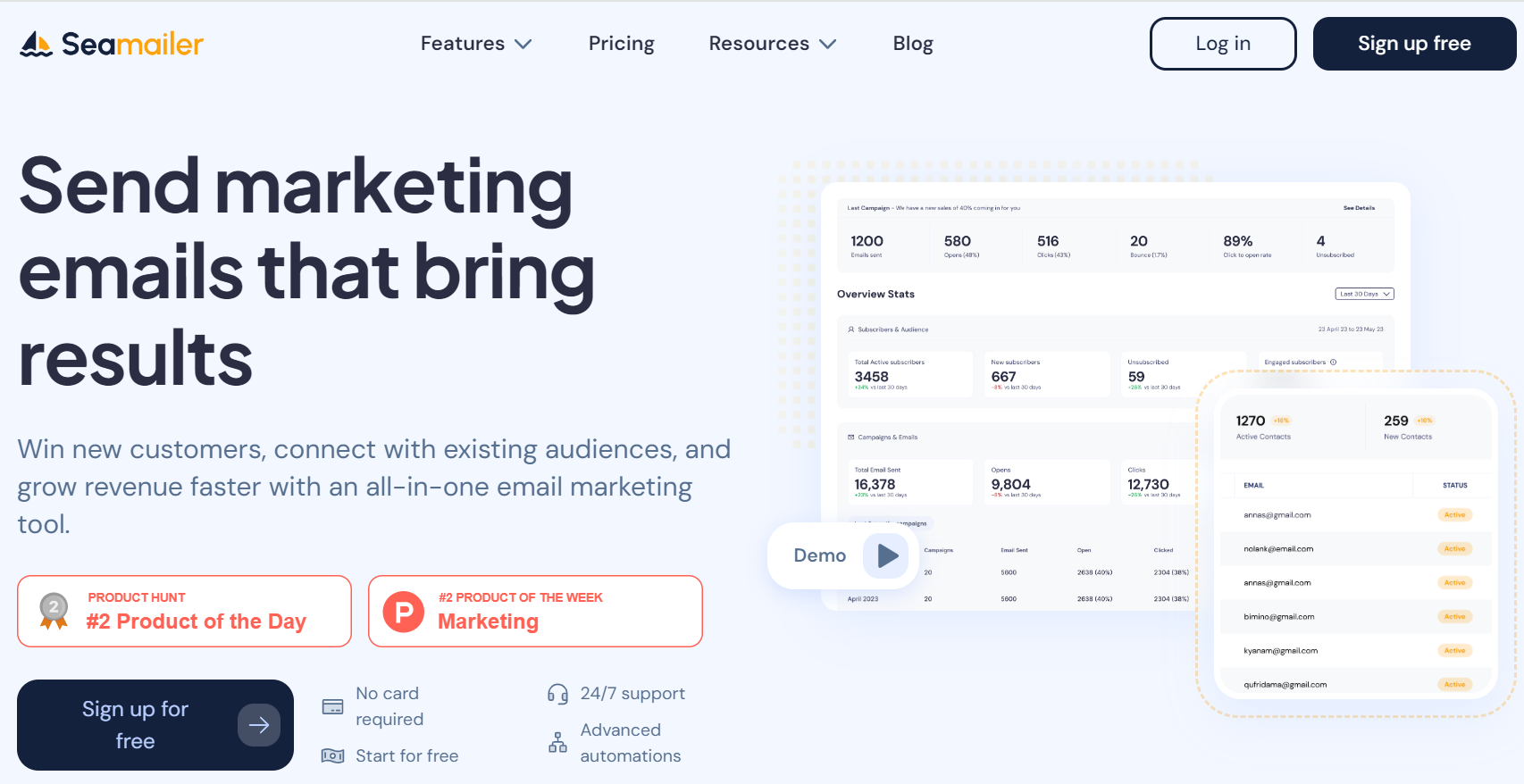How to Use AI to Scale Your Business Without Hiring More People

AI is one of the most powerful and transformative technologies of our time. It serves as a catalyst for innovation, unlocking possibilities beyond what we can currently imagine. As the defining technology of this era, AI is reshaping the way we live, work, and interact with the world around us.
Continue reading to find out:
- What is AI
- Why AI Is a Game-Changer for Scaling Businesses
- Practical Ways to Use AI to Scale Your Business
- Implementing AI in your business
- Final Thoughts
What is AI?
Artificial Intelligence (AI) is a branch of science focused on enabling machines to solve complex problems in a way that mimics human reasoning. This often involves drawing inspiration from human intelligence and translating those characteristics into computer-friendly algorithms.
Why AI Is a Game-Changer for Scaling Businesses
AI technology has advanced significantly in recent years, offering tools that are more accessible and affordable than ever. According to a report by McKinsey1, businesses that adopt AI see an average productivity increase of 40%, with 70% of companies reporting cost savings.
For small businesses and startups, this is a game changer. Instead of stretching resources thin, AI enables you to:
- Automate repetitive tasks, freeing up time for high-value activities.
- Enhance customer experiences with personalized interactions.
- Analyze data faster and make smarter decisions.
- Scale operations without proportionally increasing costs.
Practical Ways to Use AI to Scale Your Business
1. Automate Customer Support with AI Chatbots
One of the first areas in business, where you feel the pinch is customer support. Founders typically have the deepest understanding of their product, but valuable information is often scattered across multiple documents, making it challenging to access and utilize efficiently.
AI chatbots like Intercom, Drift, and Zendesk AI can handle common customer queries 24/7, providing you instant responses and reducing the need for human intervention.
Benefits:
- Handle up to 80% of common inquiries automatically.
- Reduce response times, improving customer satisfaction.
- Free up your team to focus on complex issues.

2. Optimize Operations with AI-Driven Analytics
Running a business involves making countless decisions, from pricing to inventory management. AI can analyze vast amounts of data to uncover insights, predict trends, and guide decision-making.
AI Tools for Analytics:
- Google Analytics with AI Insights: Provides automated insights into user behavior.
- Tableau: visualizes data to help you make informed decisions.
- IBM Watson Analytics: Identifies patterns and correlations in your data.

Key Advantages:
- Predict trends and customer needs with predictive analytics.
- Identify inefficiencies in your operations.
- Make data-driven decisions faster.
3. Automate Your Email Marketing with AI
Email marketing remains one of the most cost-effective ways to engage customers. With AI, you can supercharge your campaigns to achieve better results, enhance personalization, and improve engagement rates.
Benefits of AI in Email Marketing Automation
1. Personalization at Scale – AI can segment audiences based on behaviors, interests, and engagement levels.
2. Improved Open & Click-Through Rates – AI optimizes subject lines, email content, and send times.
3. Time-Saving Automation – AI automates workflows, freeing marketers from repetitive tasks.
4. Advanced Analytics & Insights – AI predicts trends and suggests improvements.
4. Streamline Operations with AI Automation
Operational inefficiencies can stifle growth, that is why in today’s fast-paced business landscape, companies are constantly seeking ways to enhance efficiency, reduce costs, and improve overall productivity.
If you’re looking to scale your business, AI automation isn’t just an option—it’s a necessity. By leveraging AI-powered tools, you can boost efficiency, eliminate operational bottlenecks, and stay ahead in today’s digital marketplace. Investing in AI automation now ensures long-term growth and profitability, helping you work smarter, not harder.
AI Tools for Operations:
- Zapier: Automates tasks between apps like Slack, Google Sheets, and CRMs.
- Trello with AI Integration: Manages project timelines and assigns tasks intelligently.
- RPA (Robotic Process Automation): Automates repetitive tasks like invoice processing and data entry.
5. Personalize Your Marketing with AI-Powered Email Campaigns
Personalization is no longer optional; 80% of your customers are more likely to buy from brands that offer tailored experiences. AI can analyze customer behavior and preferences to create hyper-personalized email campaigns.
Seamailer.app is leading the way in this transformation, providing you with powerful AI-driven tools to automate and optimize your email marketing. With Seamailer, you can segment your audience based on real-time interactions, purchase history, and engagement patterns. This ensures that every email you send is highly personalized and relevant, helping you achieve higher open rates and greater customer satisfaction.

6. Improve Marketing ROI with AI-Powered Ad Targeting
AI can take your digital advertising efforts to the next level by identifying the right audience and optimizing ad performance.
AI Ad Platforms:
- Google Ads Smart Bidding: Uses machine learning to optimize bids for better ROI.
- Facebook Ads Manager: AI identifies high-performing ad sets and adjusts budgets automatically.
- AdRoll: Combines AI with retargeting to maximize conversions.
Example:
A startup leveraged AI to precisely target its ads to a niche audience. The outcome? A 50% reduction in ad spend and a 200% boost in conversions, proving that smart automation can drive both efficiency and growth.
Pro Tip:
Regularly analyze your ad performance and refine your campaigns using AI-driven insights to maximize effectiveness and ROI.
Implementing AI in Your Business
Step 1: Identify Repetitive Tasks
Start by evaluating your daily operations to pinpoint tasks that are time-consuming yet add minimal value. These are ideal candidates for AI-powered automation.
Step 2: Choose the Right Tools
Select AI tools that best fit your business needs. Focus on quality over quantity—prioritize tools that integrate smoothly into your existing workflows for maximum efficiency.
Step 3: Train Your Team
Equip your team with the knowledge and skills to use AI effectively. Proper training can enhance productivity while reducing resistance to technological change.
Step 4: Monitor and Optimize
Continuously track AI's impact on your business. Use key performance indicators such as time savings, cost reductions, and revenue growth to measure success and make necessary adjustments.
Conclusion
AI isn’t just a buzzword; it’s a game-changer for businesses looking to scale efficiently. By automating repetitive tasks, personalizing customer interactions, and providing actionable insights, AI empowers you to do more with less.
Your business can thrive by embracing AI. Start small, experiment with different tools, and scale as you see results. With the right AI strategy, growth is not just achievable—it’s inevitable.
Ready to Scale?
At Seamailer, we’re committed to helping you grow your business. Explore our AI-powered email marketing tools and see how we can make scaling easier than ever.

